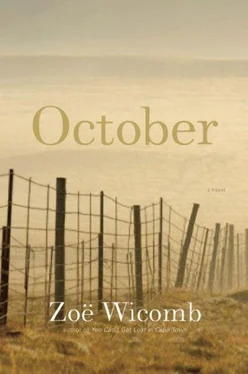Crap, Jake said, confidently. The story shows ultimately that Shylock’s rubbish, so he deserves rejection and humiliation. Listen, I can’t believe people get degrees for this kind of foolish reasoning. I’d say, pack it in, Mercia, you could have a decent job all the same. Please don’t take his money. Together, the two of us will manage. Old Who-art-in-heaven hasn’t earned our love. You too must be sick of hearing about saving and sacrificing himself for our education. It’s plain old meanness and megalomania.
Try to understand, she pleaded. His own father wouldn’t let him go to school, sent him out to plow the land. You shouldn’t rely on dictionary definitions of meanness. People who have little, or who are threatened, necessarily guard their pennies. Frugality is not the same as meanness, and Father is never mean to others. He’s never refused to help people out in this community. Take Scottish meanness. The tag tells us more about the culture that assigns the label and has no ability to see things from the point of view of another. They do not understand that frugality, practiced by and for the self, can go hand in hand with generosity directed at others.
Craig used to joke about being the penny-pinching Scot. Aye, we have to weigh ourselves down with two bottles of wine, a box of chocolates, flowers and a paperback when we go to someone’s house for a bite to eat, so as to prove to the English that we’re not mean. The wine, of course, is also to keep up with the label of drunken Scot. Aye right, it’s a burden, so it is.
Then his eyebrows would shoot up comically, perfectly shaped arcs, beautiful as a girl’s.

The little girl in a blue gingham dress that Antoinette fashioned out of her own frock that no longer fits sits proudly on her father’s shoulders as he goes about tending to the animals, checking on the broody hens, and collecting eggs from others.
Look, he says, how different the little bantam egg is, and he helps her down to peer into the nest. She wants to hold in her hand the perfect oval miniature, and he gets it for her whilst the little hen cackles angrily.
Is it the same as other eggs inside? the child asks, cupping the delicate shell, tinged a deeper brown.
Father says yes, later they’ll crack the egg, examine the yellow yolk and the white albumen. He knows that Mummy will need some for supper, that she would be more than happy to add the bantam egg. Bantams are not much use, but Nettie so wanted a pair that he gave in, and really it is nice to see these swaggering little things boasting their difference amongst the Rhode Island reds. See, he says, how different types have different characteristics, different natures. Foolish to think that everyone is the same, or equal.
Mercia is allowed to carry the precious egg. Indoors, they crack it into a saucer. The tiny yellow center floats on the quivering translucent white. Yolk and albumen, she repeats after him. He writes down the words that she has to copy on her slate.
It was the screech of pencil on slate that returned Mercia to the garden, where Jake was smoking a furtive cigarette. He said, bullshit, that she romanticized. False memory, he warned, nostalgia for an affectionate father, for things that never happened. Had she chosen to forget the hidings and the terrible sermons?
But how could an adult hold such petty grudges? The trouble with you, Jake, Mercia remonstrated, is that you refuse to understand the pressures under which that generation was raised. Empathy, my bro, can’t you summon empathy? The large families, the poverty, and lack of education. They did what they thought was best, and that is why you should forgive and forget. Larkin got it only partially right: yes, they were fucked up in their turn; it goes back and back, but it is unreasonably misanthropic to imagine that they add some extra just for you. The very fact that we can be clear eyed about their bad parenting shows that our lives are an improvement on theirs. Surely we inherit less rancor than they did. Come on, you too were a kid. You too must have larked about on the garden wall chanting, I’m the king of the castle. You too would have said, I’m going to jump, will you catch me? And of course, he did; there was no question. That is what a father is for.
Jake shook his head, stabbed a finger into the side of his head. You’re crazy, man, cut it out, you’re imagining things. Let’s go for a drink.
Mercia thought that Jake had taken some of her argument on board. On her last visit before their father’s death, Jake seemed less exercised by him, appeared to have come to some understanding with the old man. Mercia wonders why it did not occur to her then that Jake’s experience was different from hers, that perhaps as a child he was not indulged as she sometimes was. Nicholas would have believed it his duty to turn the boy into a man, to toughen him, and so suppress all that he believed to be girlish. Why had she expected Jake to melt at her soppy little tale about an egg? Why had she not remembered instead her little brother sobbing, having stubbed his big toe on a stone? Blood streamed from the toe as he hopped on one foot, trying to clutch the other. And Nicholas’s stern voice: a boy does not cry. Get down on your knees, say sorry to the stones, and stop crying right now. Because of your careless rushing about, you’ve disturbed God’s stones.
Yes, Jake was Nettie’s child, one who found it difficult to recover from her death. He chose to believe that their father had killed her.
Don’t be silly, the twelve-year-old Mercia said, how could he have killed her?
But Jake insisted that no one would want to live with such a brute; that his bellowing was enough to make their mother lie down and wish for death.
Oh, he was too young, too vulnerable, Mercia felt, to survive that death. How selfish of her to wish for a brother who would steer with his fingers on her head, thumb in the nape of her neck. Poor Jake. Too vulnerable for the idea of manliness that their father imposed on him. If only she had been old enough to protect her brother. Instead, she thought of the stepmother of fairy tales who would ruin their lives.
Please don’t marry again, the adolescent Mercia pleaded after her mother died, and her father said no, that he would devote himself to them. And his reward? — Mercia’s defection to Europe. If only she had not been so intent on escape. If only she had spent time with him during that short illness. If only Craig had left earlier, then she would have come home and eased things between father and son. As if they were children, she corrects herself. Why on earth would she who has chosen not to have children take on a motherly role?
Mercia regretted that she was unable to see Jake during his recovery at home in Kliprand. She had been engulfed with work, and reports from both father and son gave her permission to stay away. There seemed to be a truce as a no doubt chastened Jake submitted to his father’s care.
When Mercia eventually cleared time to visit, Jake was sardonic. Well, who is the hypocrite now? He laughed at her solicitous questions about the Willemse girl he had married. Go on, let it out, he said, putting on a high-pitched mimicking voice to ask: What on earth, Jacques, are you doing with one of those people? I thought, he said, I was giving the old man a lashing here but no look, my leftie, egalitarian-minded big sister is the one to be appalled.
Mercia was disappointed to find the old rancor still there. Good God, she remonstrated, don’t tell me you married the poor girl in order to punish Father. That would be so childish, and what’s more, so cruel to Sylvie — and to yourself.
Jake cackled. Remember what Grootbaas used to say when we were little: don’t show your teeth to those people — whatever that meant — they are not our kind. Well, there’ll have to be plenty of teeth on display for all of you. Sylvie’s pregnant.
Читать дальше













